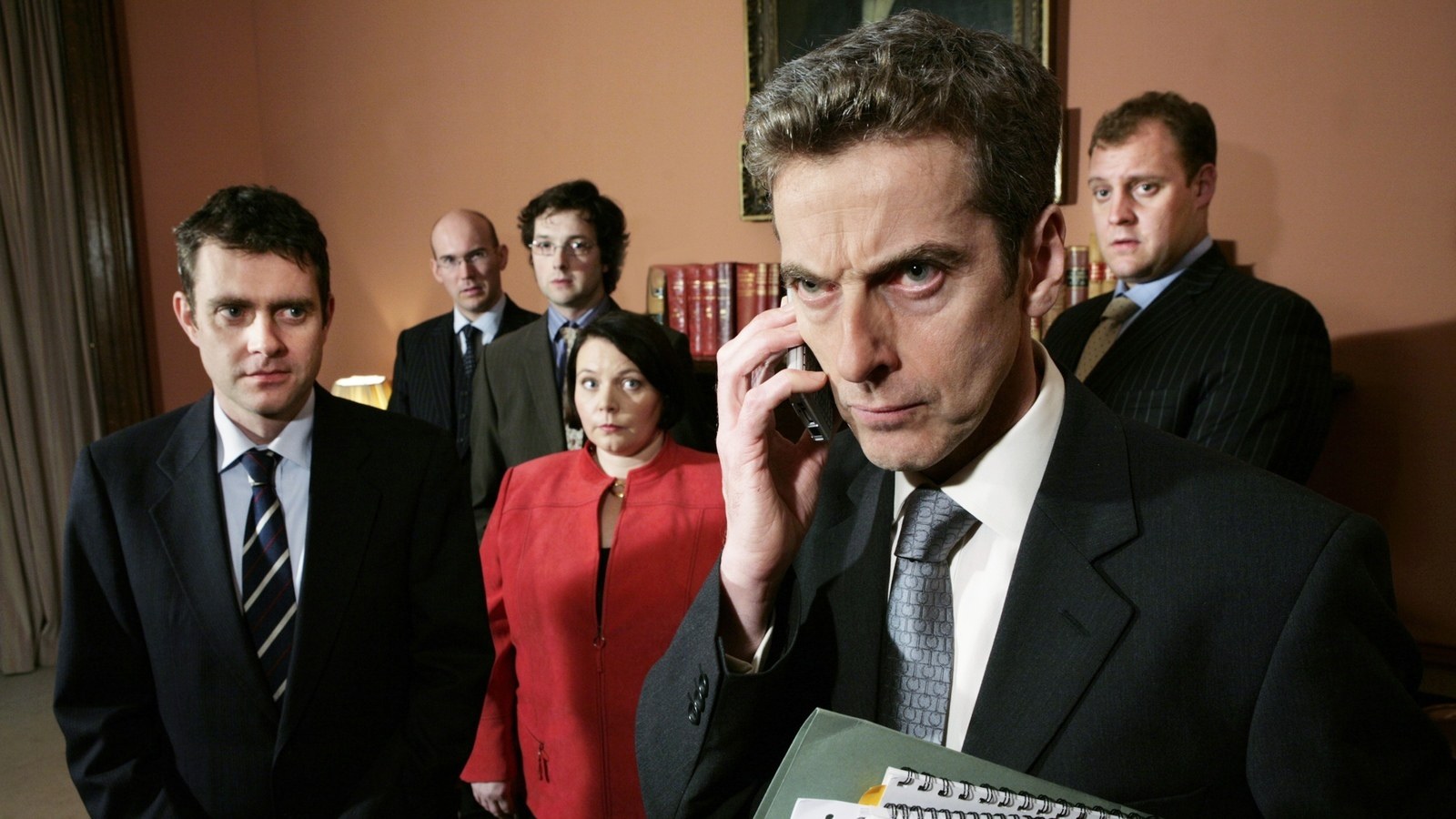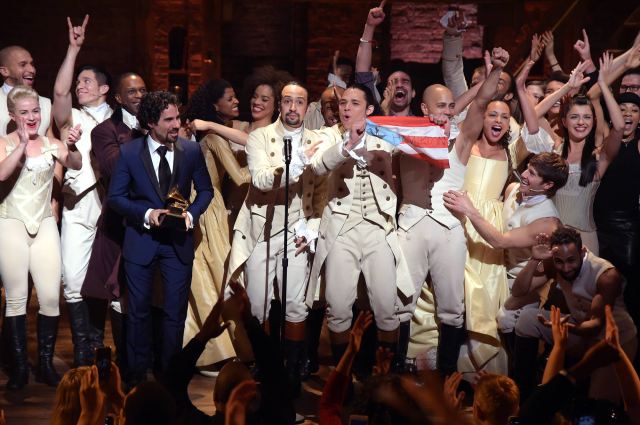Credit: Getty

This is part of UnHerd’s occasional series asking the question: what’s the bigger problem – fake news or fake drama?
Have you seen Hamilton yet? The hip hop musical about one of the USA’s Founding Fathers arrived in London just before Christmas on a crest of hype from Broadway – heaving under the weight of praise and daring you not to like it.
Its credentials as the right show to see became clear when the audience greeted the appearance of Donald Trump’s Vice President, Mike Pence, at one performance with a chorus of boos, followed by an impromtu monolgue from the stage. They were later burnished by Michele Obama, who declared it the greatest piece of art she had ever seen, which is certainly saying something – either about it or her.
It could well be that in its singing and dancing, Hamilton breaks new creative ground in musical theatre. However its liberal sensibilities – “Immigrants/We get the job done!” sings its rainbow cast – will be pretty much what you would expect. As was was highlighted by the Sunday Times’s Christopher Hart in one of the more balanced reviews[1. From The Sunday Times, Christmas Eve 2017, Hart wrote: “It’s overburdened with self-congratulatory left-liberal attitudes and a strong pro-immigration message, didactically hammered home at every opportunity. Born amid a rather cosy relationship with the real seat of power, and blessed with the official seal of approval from the start, Hamilton cannot bear the immense, ponderous weight of solemn significance with which it has been freighted in the US.”].
The truth is, most performing arts audiences now know what they are going to get in terms of political messaging, especially when it comes to theatre. That is, to an extent, why many of them go. Their prejudices will be confirmed, their membership of the right-thinking club will be re-validated, and their intelligence flattered.
What they won’t be is provoked, challenged, made to look at things a different way or simply shocked. And that would be absolutely fine, if it weren’t for the fact that the arts regularly claim to do all of these things. Because far from being at the cutting edge, far from voicing genuine dissent or protest, the arts have in fact become a kind of visual display unit for the ruling liberal establishment and its orthodoxies.
Michael Gove and Jeremy Hunt have spoken at its events and its inaugural Smith lecture was given by Douglas Murray last year.
An archive of editions of The Culture Clash programme that it produced for the internet TV station, 18DoughtyStreet, can be viewed here.
Follow the NCF on Twitter.
Around this time Nicholas Hytner, then director of the National Theatre, declared that what he would really like to see was “a good, mischievous right-wing play”. On the face of it this was encouraging. One of our great institutions was effectively admitting what a rarity such a thing would be. The choice of words, however, betrayed the underlying belief that a right-leaning drama would be a naughty indulgence, somehow infantile (“mischievous”) and an enjoyable diversion from the obviously serious, adult and intellectually valid mainstream. The accorded status would be little more than panto.
Such a play eventually came along, in the shape of Richard Bean’s raucous 2009 comedy – England People Very Nice – but in its look at immigration through the ages in London’s Bethnal Green, it ended up parroting the establishment line that, basically, ‘twas ever thus, and that there was effectively nothing to see here.
Certainly the last thing it established was any sort of trend. ‘”There’s no play exposing the corruption and abuse in a country like Venezuela – why not?” – asked the former Culture minister Ed Vaizey (in 2016). Of the arts generally he said “You have to subscribe to the group-think to get on, and that is not healthy.”
With a few courageous exceptions which prove the rule, this group-think or, as this site would undoubtedly prefer, herd-like thinking has, if anything, intensified. You will search in vain for a film, play, novel or piece of visual art in Britain which seriously challenges the doctrine of multiculturalism, or which criticises the climate change orthodoxy, or dares to take on Islamism.
You will find no Michel Houllebecq, whose head-on, politically bracing treatment of the state of life and relationships in contemporary France makes him the only modern novelist worth reading. In Britain it seems, there is no drama to be had in, for example, telling the story of a low-income white family whose lives have been transformed by mass immigration and who go out and vote Brexit. And if such a story were ever told, we could be sure of the treatment… under no circumstances would their point of view be validated.
As with so many areas of national life, the experience of Brexit indeed clarified quite where the arts stand. And it was not just about funding, and the perceived loss of EU subsidy. Nor was it about the snobbish silliness of Emma Thompson and her dismissal of Britain as a dreary, damp backwater. No, Britain’s very ability to be creative was at stake.
During the referendum campaign, 250 arts luminaries including Benedict Cumberbatch, Danny Boyle and Paloma Faith signed a letter to The Times which amounted to a kind of creative Project Fear. “From the Bard to Bowie, British creativity inspires and influences the rest of the world,” it claimed. Yes, who could possibly disagree. But then it went on, in a strange non sequitur:
“We believe that being part of the EU bolsters Britain’s leading role on the world stage…Britain is not just stronger in Europe, it is more imaginative and creative…”
Seriously? More imaginative than the Bard and Bowie? Rather insulting, actually – but then, the EU and our membership of it has long been one of the arts’ blind-spots. But they are also remarkably uncritical when it comes to other, broader political and social trends. Far from providing the much-vaunted cutting edge, they generally lag behind the public on the big issues of the day.
Satire, for example, is at one of its lowest ebbs in Britain. To be healthy satire requires a lack of inhibition, some fearlessness and a sense of outrage. How can you rip into something you basically agree with, or do not want to see attacked? The wider reaches of political correctness, for example, could alone power a whole TV series. Instead, we get The Thick of It which, while excellent, was about the various absurdities of the political process. The issues remain largely left alone. The army of fearless comedians which infests BBC panel shows stick strictly to the tried, trusted and predictably left-wing hate objects.

The culture of habitual offence-taking and the wider issue of free speech come into play here. Many people in the arts quite genuinely believe that their lines of attack should always be aimed fairly and squarely at certain quarters and that others should be left alone. But there are surely others who, for example, have internalised the lessons learned by Salmon Rushdie. When there is a chance that not only will offence be taken, but that it will be acted on, the more faint-hearted will retreat.
As I said earlier, exceptions to the general rule do come along from time to time. The BBC was hugely praised for Three Girls, its drama about the Rochdale grooming gangs scandal, although one could also say less charitably that it was a case of better late than never. Noel Gallagher and Morrissey both dissented from the general line on Brexit, as did Michael Caine. And, just occasionally, the theatre can surprise you.
I remember seeing a production at Warwick University some years back by the brilliant dance and theatre group DV8. Choreographed by Lloyd Newson and called Can We Talk About This? (video extract below), it used words, movement and mime in combination with news footage to explore the effects on free speech of radical Islam (the title quote was the last thing said by Dutch film-maker Theo Van Gogh to his assassin). It was rigorous and critical, and I remember the effect it had on the largely student audience. As they left, many of them looked confused and uncomfortable. Snowflakes before we had coined the term, they had obviously expected something else. They had perhaps been genuinely challenged.
Unfortunately such experiences are vanishingly rare (with the expansion of ‘safe spaces’ and the general closing down of the mind on our campuses, it’s debateable whether such a production (from just 2011) would be mounted now). Does it matter? Should anyone care? I’d say that if the arts want to be more than just a diversion, more than just a lifestyle choice, then yes, it does. By taking on the issues that dominate public debate, issues that figure in so many conversations every day in the real world, it’s possible too that they might even start to attract those elusive audiences which they’ve been seeking for years. And perhaps more importantly, by their very nature and indeed in their own estimation, the arts should be on the cutting edge of the battle to uphold free speech.
If they are to fulfil that role, then they have to step out of the echo chamber. For the BBC, with its public obligations and duties, it should be an absolute imperative to offer diversity of views rather than just obsessing about the diversity of its staff. This would mean commissioning editors and the like who take in the whole world rather than attempting to fit the whole world into its narrow view. I admit, this looks distinctly unlikely. So perhaps the only way forward is for us to establish new avenues, new platforms and new funding streams. Not only could such initiatives encourage talented young creatives from the right, they might even challenge the entrenched, lazy thinking which characterises so many of our arts institutions and the people in them. Over to you, rich patrons and donors: how about it?










Join the discussion
Join like minded readers that support our journalism by becoming a paid subscriber
To join the discussion in the comments, become a paid subscriber.
Join like minded readers that support our journalism, read unlimited articles and enjoy other subscriber-only benefits.
Subscribe